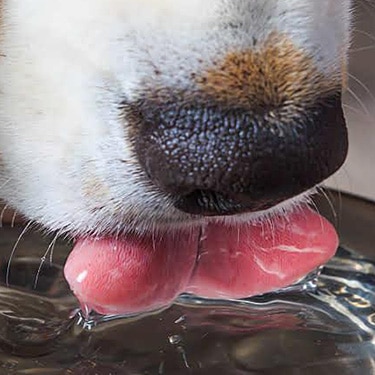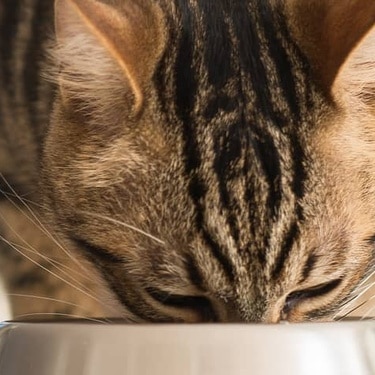
-
Find the right food for your petTake this quiz to see which food may be the best for your furry friend.Find the right food for your petTake this quiz to see which food may be the best for your furry friend.Featured products
 Sensitive Stomach & Skin Dog Food
Sensitive Stomach & Skin Dog FoodHill's Science Plan Sensitive Stomach & Skin Adult Wet Dog Food with Chicken is a complete premium dog food for adult dogs from 1 year. This savoury tinned loaf is enriched with ingredients that support digestive health & skin care.
Shop Now Perfect Digestion Small & Mini Adult Dog Food
Perfect Digestion Small & Mini Adult Dog FoodHill's Science Plan Perfect Digestion Small & Mini Adult Dog Food with Turkey is a complete premium pet food for small breed adult dogs aged 1–6 years. This deliciously smooth mousse is precisely balanced to deliver the appropriate amount of energy and to support digestive health in adult, small breed dogs.
Shop Now Perfect Weight Small & Mini Adult Dog Food
Perfect Weight Small & Mini Adult Dog FoodHill's Science Plan Adult Small & Mini Dog Food with Turkey is a complete premium pet food for adult small dogs from 1 year old that are prone to weight gain or slightly overweight. This deliciously smooth mousse is formulated to deliver the appropriate amount of energy to support weight maintenance in adult dogs.
Shop NowFeatured products with Ocean Fish, Chicken
with Ocean Fish, ChickenTender chicken chunks in gravy for cats, with L-carnitine and fewer calories for ideal weight management. Packed with high-quality protein, omega-6s, and vitamin E for shiny fur and healthy skin.
Shop Now Mature Adult Wet Cat Food with Chicken
Mature Adult Wet Cat Food with Chicken
Tender chicken chunks in gravy for mature adult cats. Made with easy-to-digest ingredients, high-quality protein for lean muscle maintenance and antioxidant vitamins C+E for optimal health.
Shop Now Adult Wet Cat Food with Chicken
Adult Wet Cat Food with ChickenTender chunks in gravy for cats, with high-quality protein to maintain lean muscle. With vitamin E and omega-3s & -6s for healthy skin and balanced minerals to support healthy vital organs.
Shop Now -
Dog
- Dog Tips & Articles
-
Health Category
- Weight
- Food & Environmental Sensitivities
- Urinary
- Digestive
- Joint
- Kidney
-
Life Stage
- Puppy Nutrition
- Adult Nutrition
- Senior Nutrition
Cat- Cat Tips & Articles
-
Health Category
- Weight
- Skin & Food Sensitivities
- Urinary
- Digestive
- Kidney
-
Life Stage
- Kitten Nutrition
- Adult Nutrition
Featured articles An Owner's Guide To Safe Water Sources For Pets
An Owner's Guide To Safe Water Sources For PetsEnsure your pet's hydration with our owner's guide to safe water sources for pets. For detailed tips on maintaining your pet's health, visit Hill's Pet UK.
Read More Tips For Mixing Wet And Dry Pet Food
Tips For Mixing Wet And Dry Pet FoodDiscover tips for mixing wet and dry pet food to ensure balanced nutrition and variety for your pet. For comprehensive feeding advice, visit Hill's Pet UK.
Read More Virtual Vet Visits: What You Need to Know
Virtual Vet Visits: What You Need to KnowLearn the ins and outs of a televet appointment before you talk to a vet online.
Read More -


People love to travel and people love to spend time with their cats and dogs. So it’s logical that people love the idea of taking their pets on holiday with them. But do our pets really like travelling as much as we think they do?
My dogs, Pan and Badger, were with me practically all the time – at work, at home, and even at the pub after a long day! Like lots of people we also took them on holiday with us. The reality wasn’t quite as simple as we might have thought though, so to help you make that decision I need to put my vet hat on.
As a vet, whenever I’m asked for pet care advice I love to take it back to basics and think about the five needs for pets. This is a great way to make sure all your bases are covered. The five needs are:
- Food and water.
- The right environment.
- To be with or without other animals.
- To express normal behaviour.
- To be protected from pain, injury and disease.
It may seem obvious but it’s a great tick list for planning your holiday. I’m going to focus on dogs in this article but the same advice applies to cats too.
Food and water.
Water is the most essential thing to think about first. Cats and dogs should always have access to fresh water if possible. If you’re planning a long journey you need to make frequent stops to offer water if it can’t be provided in the car. Remember that even in an air-conditioned car, the boot can still get very hot. I’ve seen dogs in practice get heat stroke while travelling because the owners hadn’t realised how warm the boot was. You’ll also need to make sure that the water is safe to drink for you and your pet where you are going.
Plan to take enough food with you for the duration and a little bit extra in case of delays. You may be able to buy food where you’re going but a change in diet can cause some fairly drastic tummy upsets which you don’t want on holiday! This is especially important if your dog or cat needs a special therapeutic diet from your vet.
Environment.
This could be similar to where you live but often we go to very different climates and this could impact your dog. Don’t expect them to want to do lots during the heat of the day. Let them find shade and rest when they want to. If you have a very hairy dog, think about having them clipped before you go. It can make a huge difference to their comfort.


Tasty Tips
Young pets may need several visits in their first year for vaccinations. Adult pets generally benefit from annual check-ups, while senior or special-needs pets might require more frequent visits.
Other pets.
In the travel situation this is more about encountering other dogs and cats abroad. Make sure you talk to your vet about diseases that your pet may be exposed to while abroad. This is important for stopping diseases coming back to your home country as well as thinking about your pet safety.
Behaving Normally.
Lots of pets get upset with changes in routine and it’s important to try and keep this as normal as possible. For mental happiness dogs and cats, like all animals, need to be able to express themselves. For dogs this means playing, exploring, digging and so on. Even though you might want to relax on holiday, remember that your dog still needs stimulation and may not want to chill on the beach all day.
Pain, injury and disease.
No one wants to think about this but accidents can happen and foreign climes can harbour all sorts of sub-tropical diseases and parasites that your dog or cat could be exposed to. For example, Leishmaniasis, which is spread by sand flies can be difficult to diagnose and can cause serious disease and even death. Other examples are Dirofilaria (also called heartworm) and Echinococcus. These can be dangerous for humans as well as animals.
Make sure you find out what vaccines and parasite treatments are necessary for you to travel. But also ask your vet about any they would recommend on top of the obligatory ones. Have a pet first aid kit with essentials like bandages, tick removers, sterile water for cleaning eyes, tweezers and so on. Many are available to buy and useful to have at home too. If your pet needs prescription medication, plan ahead and make sure you definitely have enough for the whole time you’re away. You may not be able to get a prescription filled abroad. And, as we said before, quite a few 'subtropical surprises' may only manifest themselves long after you have returned home. So if your pet gets ill after you come home, please visit your vet and don’t forget to mention that you have been abroad!
And finally…
We had some great times abroad with ‘the boys’ but it wasn’t all plain sailing and if they had caught a disease I’m not sure I would have forgiven myself. Think long and hard about whether you want to take your pet abroad. It can be difficult for both you and your pet and there is most definitely a risk of diseases wherever you go. Cats particularly find travel and strange places very stressful as may the timid dogs out there.
If you have someone dependable to look after your pet it may be less stressful for the pet to stay at home and it might make your holiday a lot more relaxing. Whatever you decide – safe travels!


Sarah Whitehead is a renowned Certified Clinical Animal Behaviourist based in the UK, with a deep passion for unlocking the secrets of animal behaviour. With expertise in both dogs and cats, Sarah is dedicated to helping pet parents decode the subtle language of body cues and behaviour. She believes that training and play are powerful tools not only for improving communication but for building lasting, meaningful connections between humans and their canine and feline companions. Sarah’s approach combines science with compassion, offering a fresh perspective on how to enrich the lives of our pets and deepen the bond we share with them.
Related products

Tender chunks in gravy for cats, with high-quality protein to maintain lean muscle. With vitamin E and omega-3s & -6s for healthy skin and balanced minerals to support healthy vital organs.

Tender chicken chunks in gravy for mature adult cats. Made with easy-to-digest ingredients, high-quality protein for lean muscle maintenance and antioxidant vitamins C+E for optimal health.

Hill's Science Plan Adult Cat Premium Chunks in Sauce with Turkey is a complete pet food for adult cats aged 1-6 years

Tender chicken chunks in gravy for cats, with L-carnitine and fewer calories for ideal weight management. Packed with high-quality protein, omega-6s, and vitamin E for shiny fur and healthy skin.
Related articles

Learn the ins and outs of a televet appointment before you talk to a vet online.

Learn how to determine how many calories your dog or cat needs each day, as well as how to count their calories and what to do if they're getting too many.

Discover tips for mixing wet and dry pet food to ensure balanced nutrition and variety for your pet. For comprehensive feeding advice, visit Hill's Pet UK.

Ensure your pet's hydration with our owner's guide to safe water sources for pets. For detailed tips on maintaining your pet's health, visit Hill's Pet UK.

Put your pet on a diet without them knowing
Our low calorie formula helps you control your pet's weight. It's packed with high-quality protein for building lean muscles, and made with purposeful ingredients for a flavourful, nutritious meal. Clinically proven antioxidants, Vitamin C+E, help promote a healthy immune system.
Put your pet on a diet without them knowing
Our low calorie formula helps you control your pet's weight. It's packed with high-quality protein for building lean muscles, and made with purposeful ingredients for a flavourful, nutritious meal. Clinically proven antioxidants, Vitamin C+E, help promote a healthy immune system.

